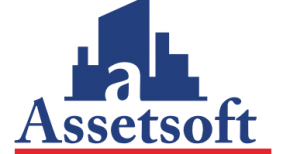Finding back-office talent was a challenge for property management firms long before the pandemic. And while the crisis is beginning to fade, staffing issues will likely remain a top concern for many teams. Fortunately, one thing employers have learned throughout COVID’s working restrictions is that virtual staffing is more effective than ever at filling workforce gaps.
“The past two years have erased a lot of the concerns and misconceptions around hiring and working with remote talent,” says Akan T. Rajah, Managing Partner with Assetsoft. “A lot of employers realized that their team members didn’t have to be physically within the office to do their work effectively, and that was especially true for back-office functions like accounting.”
Employers are also turning to virtual staffing to solve a never-ending talent shortage. The reality is that back-office professionals are in extremely high-demand, and finding local recruits means offering more than the competition. With virtual staffing, however,
employers can access qualified and experienced labour pools worldwide.

No doubt, virtual staffing is a modern solution for a modern challenge. And it’s one that Rajah and his team at Assetsoft bring to the property management community And whether his team is being asked to assume routine tasks or assist with more intellectual responsibilities, Rajah says the result is always the same: “Once they see how quickly we learn their business and integrate with their workforce, they start seeing us as part of the team.”
The truth behind virtual staffing myths
There are quantifiable benefits to virtual talent handling back-office functions. Even still, there are myths and misconceptions that continue to hold employers back from making a decision that could save them manpower, money, and headaches. For example:
Myth: Virtual staffing poses data security risks
Reality: Data security and privacy are always a prime concern when employees work remotely. In recent years, advances such as expanding internet connectivity, virtual machines, VPNs, and fine-grained data control which enable secure access from anywhere, have put those anxieties to rest.
“During COVID, a lot of companies realized that Software as a Service (SaaS) platforms and virtual machines allow their employees to work securely with sensitive data from remote locations,” says Rajah. “At the same time, virtual staff providers like ourselves upped their data security capabilities to make sure their clients’ data was well protected.”
For example, he adds, “The team works from our premises with 24/7 video surveillance and physical access restrictions. As well, a ban on mobile phones in the work area, enterprise-grade firewalls, blocked USB and card ports, regular copyright training, and other data security practices also ensure that the data accessed by virtual staff is secure and never leaves the office.”
 Myth: Virtual accountants won’t have the same level of industry knowledge
Myth: Virtual accountants won’t have the same level of industry knowledge
Reality: Working in property management requires an innate understanding and proficiency in back-office systems (e.g., Yardi), accounting standards, Canadian Tax Laws, and specific property operations.
Today, these are all skills that today’s virtual accountants can bring to the table. “Our people may not be in the office, but they’re experts in what they do, and they’re experts at learning a client’s operations and becoming part of the team,” adds Rajah.
Myth: Virtual teams outside of Canada mean different time schedules
Reality: Many third-party service providers work around their client’s schedules and time zones, ensuring they’re accessible no matter their location.
Myth: Virtual staffing means losing control
Reality: Virtual teams like Assetsoft may assume responsibility for accounting, rent collection, vendor management, lease audit/abstraction, bookkeeping, reporting, treasury management, or any number of tasks, but that doesn’t mean they assume control.
For example, Rajah adds: “Our virtual staffing model ensures the client has direct control on their business outcomes. Our client can establish their very own team without worrying about all legal, human resource, and technical requirements.”
 Myth: Remote employees won’t feel part of the team cohesion
Myth: Remote employees won’t feel part of the team cohesion
Reality: It can be odd to think of teams being split across Canada or overseas. Still, many companies, large and small, have done exactly that during the pandemic to considerable success. Now that employees are being welcomed back into the office, many continue to embrace a remote or hybrid working model, recognizing that employees don’t need to be physically in the same room to be an integral part of the team.
Myth: It’s too expensive to hire virtual accountants
Reality: It’s actually the reverse. Virtual staffing enables companies to offload all the hiring, training, onboarding, and staff management responsibilities to their virtual staffing partners, saving them the expense and time it would take to tackle these HR functions internally.
“We look after all the hiring and ongoing HR concerns, so they don’t have to,” says Rajah. “The whole idea is to provide the support that ultimately frees up client resources.”
Blame it on shifting attitudes. Pin it on pandemic disruptions. Whatever the cause, the “Great Resignation” has left employers struggling to find people who know what they’re doing and are willing to work. True, embracing virtual accounting partners may have been a challenge in years past, but the technologies, skills, and third-party partners are in place today to make it a welcome and beneficial part of any business strategy.

The Assetsoft team encourages any questions and inquiries. Email them at info@assetsoft.biz or visit their website at www.Assetsoft.biz.






